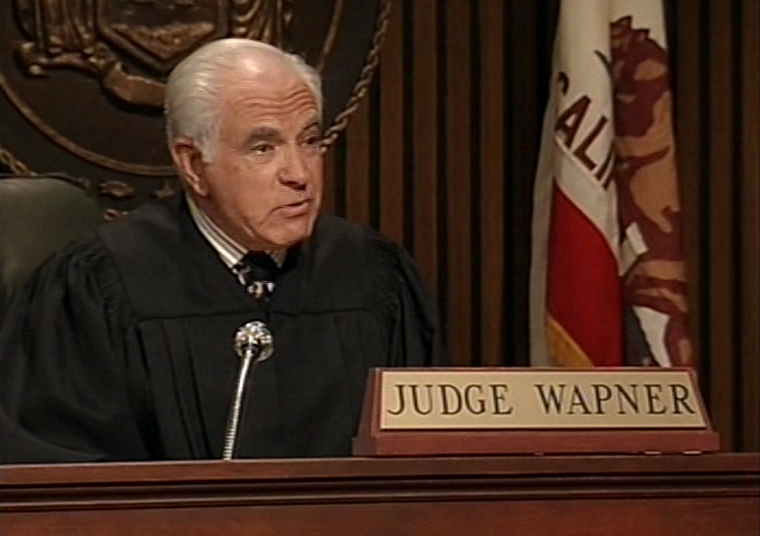
OK, we have given N.T. Wright the floor for our last handful of posts, it is now time to take it back.
For confessional Reformed believers, the biggest obstacle to a “new perspective” reading of Paul is Wright’s denial that Jesus’ life of obedient law-keeping is reckoned to the sinner in justification. Rather, Wright argues, the “obedience” that is so reckoned consist only of the Messiah’s death, and not his life. Wright loves to appeal to Philippians 2:8 at this point, which speaks of Jesus “becoming obedient to the point of death, even the death of the cross.”
I would like to offer some points by way of response.
First, regarding Philippians 2:8, Wright would surely agree that his Reformed opponents do not deny that Jesus’ death was an act of obedience to the Father. In other words,
no one is denying what this verse says. For Wright to appeal to it in order to refute the imputation of Christ’s active obedience places a much greater burden on the text that it can bear, for in Philippians 2:8 Paul did not say that Jesus’ death
alone constitutes the whole of his obedience to the Father, but simply that Christ “became obedient to the point of death.” And moreover, the apostle’s language of “to the point of death” (
mexri +
thanatos in the genitive case) would seem to indicate that the Messiah’s death was the culmination of his obedience and not just the sole example of it.
Secondly, we have in Romans 5:18-19 one of the most clear Pauline articulations of the doctrine in question:
Therefore as one trespass led to condemnation for all men, so one act of righteousness leads to justification and life for all men. For as by the one man’s disobedience the many were made sinners, so by the one Man’s obedience the many will be made righteous.
A couple points need to be made here in order for these verses to have their full effect. First, although the ESV regrettably follows the NIV in translating
di’ henos dikaiomatos as “one act of righteousness,” the context (as well as many commentators) demand that the word
henos (one) be rendered in the masculine gender instead of the neuter (though they look identical in the original). In other words, the word “one” should be understood to refer to a masculine subject (“the Man”) rather than to a neuter one (“righteousness”), thus rendering the phrase
not “one act of righteousness” but “the righteousness of the one Man” (as it appears in the NKJV). Surprisingly, many who deny the imputation of Jesus’ active obedience cite Romans 5:18 in such a way as to give the impression that it answers the question definitively, thereby demonstrating a complete unawareness of the grammatical debate surrounding it. But as Cranfield says:
Since henos is masculine in its three occurrences in v.17 and also in its two occurrences in v.19, and since the whole subsection is concerned with the relation of the one man Adam and one Man Christ to the many... it is surely better to take henos here as masculine (Romans, 289).
Another grammatical point that is worth mentioning is that here in Romans 5, Paul teaches the substance of the imputation of Christ’s active obedience without ever using the allegedly controversial word
logizomai. According to many Federal Visionists, this Greek word that is usually translated as “impute” does not mean to transfer something from one person to another, but only to reckon it to be so. But follow Paul’s logic in vv. 15-19: first, Paul teaches that Christ, like Adam, functions as a federal Head who represents, and acts on behalf of, a people; second, through Christ’s representation his people are given a gift; third, this gift results in justification; fourth, this gift that results in justification consists of righteousness; and fifth, the righteousness that is given is the obedience of Christ, which constitutes us righteous. To summarize, Paul teaches that the obedience of Christ is given as a gift to the sinner resulting in his justification, all without ever using the word
logizomai.
Lastly, if Christ’s “righteousness” (both in Romans 5 and elsewhere) refers to his covenant faithfulness, then the question must be asked, “To what, exactly, was Christ faithful?” Remember, Paul makes it clear in Romans 5:18-19 that Jesus’ “righteousness” is his “obedience.” So if Jesus’ obedience is given to the sinner as a gift resulting in justification (which Romans 5 explicitly says), then is Wright correct in saying that Christ’s obedience is his death only? I mean, for all of Wright’s moaning about how supposedly a-historical and non-covenantal Reformed theologians are, one would expect that his understanding of the Messiah’s
covenant faithfulness would be defined as faithfulness to Torah, the covenant of law. But if Wright is willing—at precisely this most crucial of points—to surrender his boasted historicity and attention to covenant by removing Torah-keeping from his definition of Christ’s covenant faithfulness, then as far as I am concerned, all bragging right are henceforth null and void.
Please don’t interpret me as being dismissive of Wright as a whole—he makes many important exegetical points throughout his body of work. On this point in particular, though, the confessional Reformed believer must respectfully dig his heels and say with the dying Machen, “So thankful for the active obedience of Christ... no hope without it.”
 I made a statement in my morning sermon yesterday that struck some people as unsettling, but I plan to stick by it unless I can be shown to be wrong:
I made a statement in my morning sermon yesterday that struck some people as unsettling, but I plan to stick by it unless I can be shown to be wrong:










